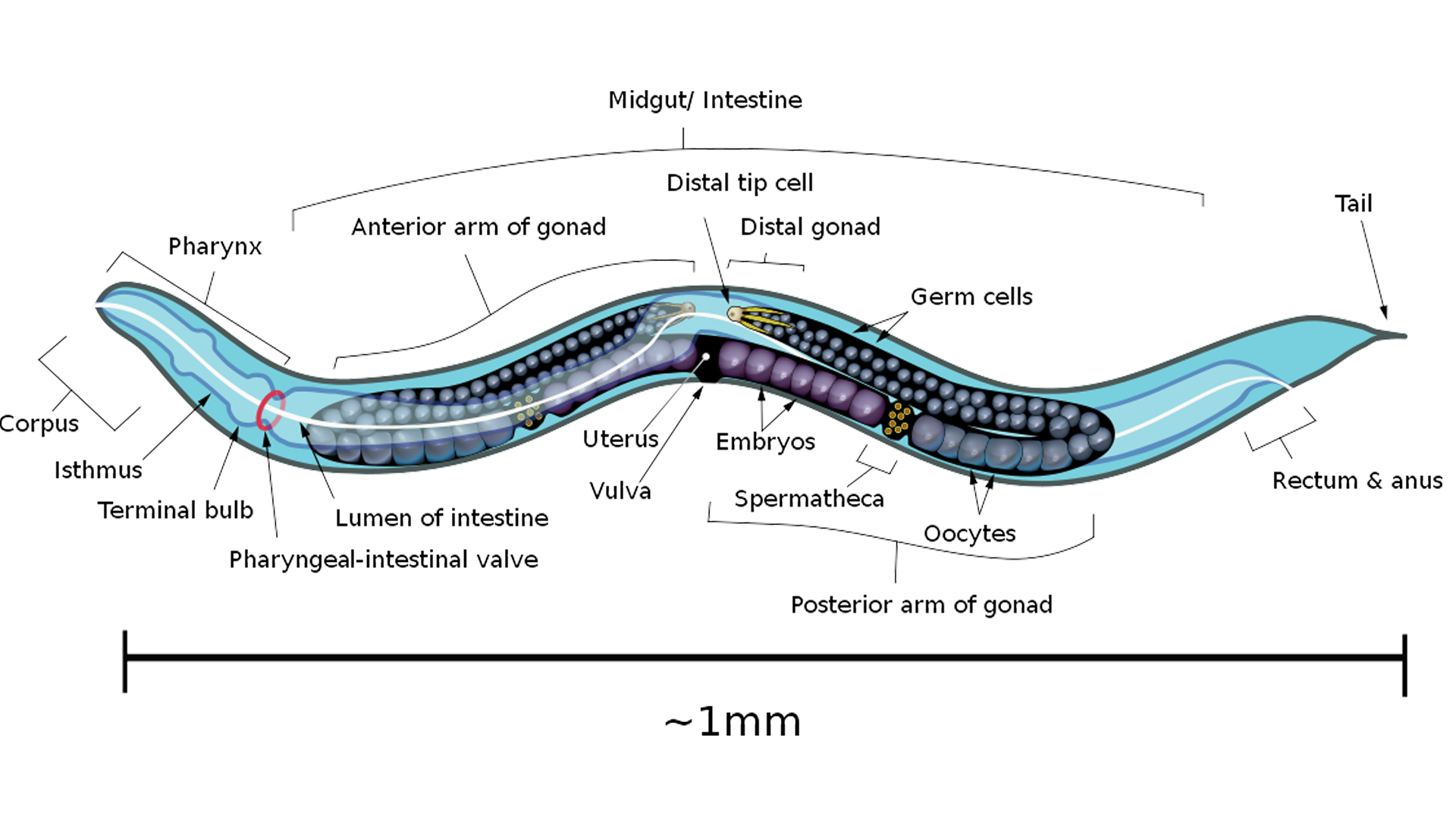C. elegans

A lateral (left side) anatomical diagram of an adult-stage nematode hermaphrodite C. elegans. Credit: K. D. Schroeder (CC BY-SA 3.0)
How do genes control animal development and behavior? To answer this question, developmental and behavioral mutants of the roundworm Caenorhabditis elegans have been isolated, with genetic, biochemical, molecular, cellular, and electrophysiological techniques used to characterize wild-type and mutant animals. The complete cellular anatomy (including the complete wiring diagram of the nervous system) and the complete cell lineage of C. elegans are known, allowing mutant animals to be studied at the level of single cells and even single synapses. Genes defined by mutations can be rapidly cloned and analyzed. In addition, genes defined by sequences similar to those of known genes (e.g., from humans) can be easily identified and inactivated. Studies of C. elegans have helped reveal neuronal and synaptic mechanisms that are shared among organisms as diverse as roundworms and humans and that are implicated in a broad variety of human diseases. For more information about C. elegans research visit the websites of Nobel Laureate H. Robert Horvitz and BCS Faculty Member Steven Flavell.

